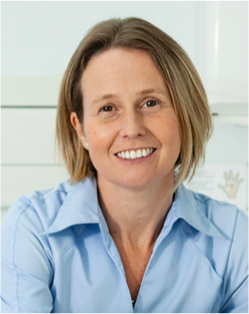Abstract
Views from the Women of Wessex Dental Peer Review Group Meeting of 21 April 2020 summarized, on behalf of the group, by
From Volume 47, Issue 5, May 2020 | Pages 386-388
Views from the Women of Wessex Dental Peer Review Group Meeting of 21 April 2020 summarized, on behalf of the group, by


Since the shutdown of UK dentistry on the 25 March 2020, at the time of writing, regional health teams have worked tirelessly to set up 219 Urgent Dental Centres (UDCs) to treat those in the population facing the very worst dental emergencies. They should be greatly commended for this effort.
Unfortunately, due to the precautions currently needed to provide protection for patients and clinicians during Aerosol Generating Procedures (AGPs), under the current protocols, these Urgent Dental Centres can collectively only treat 3,500–4,400 patients a day.
Like many practices, we are triaging our patients by telephone. The number of calls we are receiving from patients in pain or discomfort is increasing every week, due to not intercepting potential emergencies through routine dental care. On average, we are now speaking to six new patients a day who are in discomfort and we would class as, under normal circumstances, needing to be seen. Anecdotal evidence from other Practice owners we know points to a similar growing treatment crisis.
Multiplied across the UK population of 66.65 million people, if our practice experience is fairly typical, we estimate at this week's level of emergency calls (6 per day) that this equates to 133,300 patients a day requiring treatment of varying levels of urgency.
Thus, if it is anticipated that these UDCs will provide the bulk of ongoing dental care to the UK's population beyond the initial lockdown period, by our estimation, to meet this growing tsunami of dental need, the number of UDCs will need to be increased by 30 times to around 6,600 UDCs.
This is simply unrealistic.
In addition, contrary to the article in The Times on 12 April, reporting one in five dental practices was facing bankruptcy within a month, our belief is that most dental practices can survive three months before bankruptcy, based on savings and other borrowing avenues. However, if dental practices are not able to return to work in the next two months, without massive costly state intervention, the dental industry will be decimated (including the large support industry of suppliers, etc), placing an enormous future burden on the NHS to meet the population's dental care needs.
It is therefore an imperative that General Dental Practitioners and Dental Practices are allowed to return to work en masse in the near future and become part of the solution rather than the problem.
In our opinion, the Government's focus in relation to dental provision now needs to shift from setting up UDCs to providing and enforcing protocols to which general dental practitioners can return to work and safely treat patients.
Prior to the COVID-19 outbreak in early 2020, all dental procedures (including AGPs) were carried out using level 2 PPE – FFP1 masks, gloves, scrubs and eye protection. Even if this is now more difficult to source, a significant amount of this level 2 PPE is currently sitting in the cupboards of moth-balled dental practices across the UK.
The Government advice set out in the ‘COVID-19 guidance and standard operating procedure’ for UDCs published on 15 April 2020 (see link) is that this already available level 2 PPE is deemed sufficient for providing non-aerosol generating dental procedures (non-AGPs) in UDCs (Table 1).
| Waiting room/reception | Dental surgery | Dental surgery | |
|---|---|---|---|
| No clinical treatment | Non AGP treatment | Treatments involving AGPs | |
| Good hand hygiene | Yes | Yes | Yes |
| Disposable gloves | No | Yes | Yes |
| Disposable plastic apron | No | Yes | No |
| Disposable gown* | No | No | Yes* |
| Fluid-resistant surgical mask | Yes | Yes | No |
| Filtering face piece (FFP3) respirator** | No | No | Yes |
| Eye protection*** | No | Yes | Yes |
Unless this guidance changes, through their existing stock of level 2 PPE (Table 1), we therefore propose that, at the first easing of current lockdown restrictions, NHS and Private dental practices are allowed to re-open to provide the following non-AGP treatments:
All of the above treatments can be carried out without Aerosol Generating Procedures (AGPs) and constitute probably around 50–60% of the average dental practitioner's time.
This would enable dentists to treat/intercept many dental problems in their own communities which otherwise could quickly become referrals to UDCs, and prevent and relieve an enormous amount of pain and suffering for patients.
This would also enable the dental industry (including the support industry) to return to work and at least generate some income to survive, lessening the burden on HM Treasury and also saving thousands of jobs.
Due to the current shortages of PPE, it is likely that there will be a period of time that both Private and NHS practices will need to work alongside the UDCs, referring appropriately to UDCs where AGPs are absolutely required. During this time, the protocols for safe AGPs will continue to be developed and hopefully the availability of level 3 PPE will improve.
However, with time, if individual Practices can prove that they can meet the robust COVID-19 infection control procedures that the UDCs are working to, it is unreasonable, counter-productive and indeed arguably a restraint of trade, that Dental Practices cannot provide AGPs to their own patients.
The CQC regularly acknowledges that the dental industry is a leader in the medical field in terms of early adoption and compliance with cross-infection control standards. It will be much easier, cheaper and less burdensome on the Government to lay down and enforce strict protocols (possibly through certification and even CQC inspections or online interviews if deemed necessary) on Practices to provide AGPs safely themselves rather than to try and form from scratch another 6,600 Urgent Dental Centres.
We are all aware that there is currently a shortage of fitted FFP3 masks and other enhanced PPE-like full-gown aprons. To protect patients, practitioners and support staff, it is reasonable that, unless Practices have fit-tested FFP3 masks and other appropriate PPE, and can prove they are working to the robust COVID-19 SOP protocols, they should be prevented from providing AGPs.
However, Practice owners are enterprising people and will be capable of quickly adapting their practices and protocols, as well as sourcing their own FFP3 masks and other appropriate PPE to provide as safe a service as the UDCs.
There are already a huge number of FFP3 masks in general circulation in the UK (most people in the building industry have them!) and some dental practitioners have already sourced them in anticipation. In a market economy, certificated fit-testing services will also soon be available again once lockdown restrictions are eased. With the assumption that disposable gowns are going to be unavailable for some time, the use of long-sleeved lab coats or something similar (with a disposable apron underneath) for a dedicated AGP practitioner and nurse could be used instead of disposable gowns. They could be changed after every AGP and washed separately daily at 60°C. In addition, using the protocols already devised in UDCs, all protocols around room decontamination and clean down could be followed. The use of rubber dam could also reduce saliva-contaminated aerosol production, further lowering the risk to personnel. Most practices will also be able to instigate ongoing social distancing measures for both patients and staff. In this way, following the robust COVID-19 SOP, many Practices could still carry out 4–5 AGPs a day as safely as any UDC.
By allowing Practices who can evidence meeting the COVID-19 SOP to provide AGPs to their own patients, this would free up UDC capacity to support the practices who aren't yet able to meet these requirements. Patients would significantly benefit from accessing care from their own dental practices rather than UDCs for the following reasons:
Finally, as well as easing the burden on the UDCs, it would also protect the Government from any accusation of monopolies or claims about restraint of trade – an area the Government is in danger of straying into with the current arbitrary (non-open) selection of practices as UDCs.
In conclusion, whilst there are challenges to overcome, the vast majority of Dental Practice owners want to serve their patients to the best of their abilities and help the nation at this time of crisis. We believe the Government needs to embrace the skills, resources and goodwill of both NHS and Private Practices, who remain best placed to serve our population at this time of crisis. Through adopting the protocols outlined above, it will be more timely and efficient, more cost-effective and, above all, in the best interests of patients, for the existing UK dental industry to be mobilized to meet the current dental crisis facing the UK.